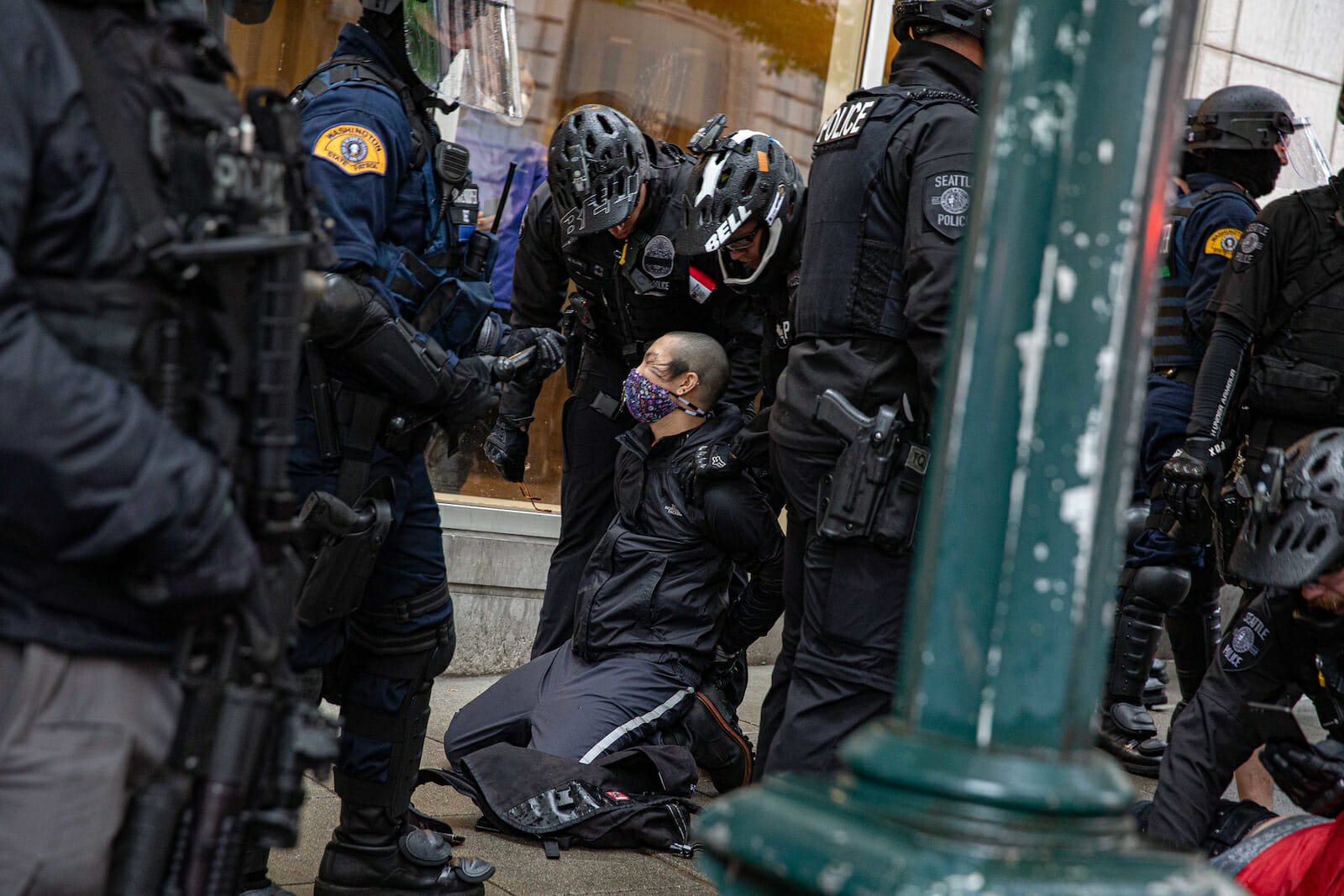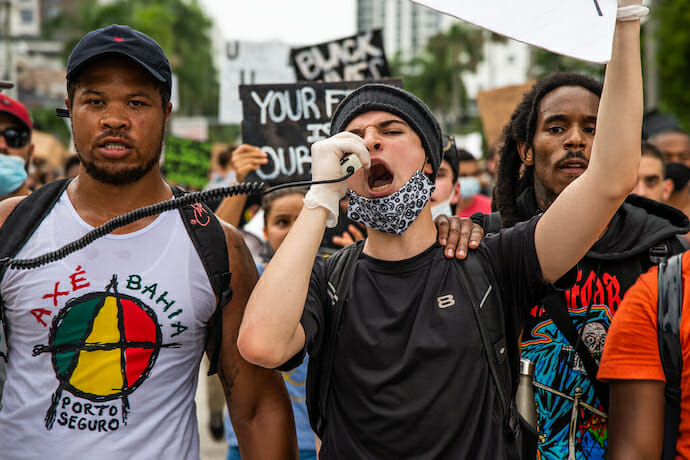
Radical Reforms: Disbanding Police Forces in the U.S.
“I’ve been saying for the last several years…American policing is at a crossroads.” – Mike Cutone, former Massachusetts officer, June 5, 2020
If you can envisage the commencement of a police force as a band of auxiliaries to keep slaves in check, capture escapees, and sow much terror, it becomes that much clearer. Such men were not stewards to keep the people safe; they were there to protect a propertied status quo at the end of the whip and baton. In the southern US states, the modern police organisation that found form was the “Slave Patrol,” vested with powers to hunt down, apprehend and return runaway slaves to their owners while maintaining a deterrent of terror and discipline. In the aftermath of the Civil War, Southern police departments continued to exert a degree of control over freed slaves within the context of Jim Crow segregation. Appearances were kept up.
The rage following the death of George Floyd on May 25 has sent a shiver of reform down the spine of the Minneapolis establishment. In Minneapolis, nine members of the city council spoke of their intention to disband the city’s police force. Council President Lisa Bender told CNN about a pledge “to dismantling policing as we know it in the city of Minneapolis and to rebuild with our community a new model of public safety that actually keeps our community safe.”
One method of change making its way in public policy land is a traditional one: redirecting the public purse. Take the funding away from the agency with a monopoly on the use of force within the state or city – in this case, the police – and invest it in the marginalised communities where policing would otherwise be required. On Sunday, New York City Mayor Bill de Blasio announced a measure along such lines, cutting the budget of the NYPD and relocating resources to youth and social services. “Our young people need to be reached, not policed.”
Advocates are not entirely clear, however, whether to go the whole hog on this and abolish departments altogether, or retain some skeleton force. In the case of Minneapolis, a cut of $200 million is being proposed to its $1.3 billion annual budget. The police budget in 2020 was $189 million, which will supposedly be directed towards “community-based strategies,” a term that could encompass anything. Bender, at least, has an inkling of the problem, given that most 911 calls tend to focus on matters touching on mental health services, general health issues, and fire services.

Community organisations with a pro-defunding platform for police are not calling for an immediate cessation of cash. As MPD150, a group based in Minneapolis, argues, “we’re talking about a gradual process of strategically reallocating resources, funding, and responsibility away from the police and toward community-based models of safety, support, and prevention.”
MPD150 suggests drawing out other participants better equipped to deal with social crises. Drop the idea of deploying “strangers armed with guns, who very likely do not live in the neighbourhoods they’re patrolling.” Shift the emphasis, rather, to “mental health providers, social workers, victim/survivor advocates, religious leaders, neighbours, and friends – all of the people who really make up the fabric of a community – to look out for one another.”
As with any abolitionist community, the views are scrappy and fractious. Do you embrace gradualism? Or do you go for the proverbial policy jugular? Campaign Zero’s 8cantwait campaign has been attacked by another group, 8toAbolition, which has mauled it for its “claims, assumptions, and faulty science.” Scratch the surface of radicalism, and the accused collaborator will be found. The central problem with Campaign Zero’s main claim – that adopting its policies of restraint would “reduce” police killings by 72% – has been seen to preserve a tinkered system rather than tearing it apart. 8cantwait advocated “a pacification method,” rather than a solution.
For its part, 8toAbolition’s to-do list includes defunding police, demilitarising communities, removing police from schools, freeing people from the prison system, repeal laws criminalising “survival,” investing in community self-governance, providing safe housing for all and investment “in care, not cops.” The organisation envisages “a society without police or prisons, where communities are equipped to provide for their safety and wellbeing.”
This may sound a touch treacly, but social experiments of this kind have been tested on US soil. The entire Camden police force was disbanded in New Jersey which was succeeded by a larger, county force with a focus on “community service.” The 2013 decision seemed counter-intuitive: Camden boasted the dubious honour of having one of the highest crime rates in the country. All the accompaniments were there: dilapidated and distressed neighbourhoods, abandoned storefronts, and homes; ruined playgrounds.
In place of the former 141-year old police force was a new outfit. Police officers were re-hired, along with fresh blood, at lower salaries. They were encouraged to mingle with residents and build a rapport with the community. Arrests and the issuing of tickets would be frowned upon. In 2014, Camden County Freeholder Director Louis Cappelli, Jr. was confident that the shift had worked. “We’ve started taking back sectors of the city on behalf of residents.” Parks had been reclaimed for children; the bloated murder rate began to fall.
Anoka County Sheriff James Stuart is far from impressed with such suggestions, as is Minneapolis Mayor Jacob Frey, who has publicly opposed the abolition route. Abolitions, defunding, and reduction in police personnel could never take place in a vacuum. His agency had “no appetite” in working in a city with an abolished police department. “The members of the Minneapolis City Council should be mindful that numerous other law enforcement agencies have responded to them, to restore order, to protect their citizens, and to return peace to their city during recent tragic days.” Should they “choose to eliminate their police department through defunding operations without a realistic plan, they must also choose to live with the consequences of their decisions.”
The question of logistics is one thing, but whether the councilors of Minneapolis will have the iron cast stomach to pursue the promised change is the question that will remain begging til actual steps are taken. “We don’t have all the answers for what the future looks like,” Ward 5 councilor Jeremiah Ellison airily declared, “but the community does.” Till then, much of this will seem like moral posturing, the performance of a role that will simply pass.
